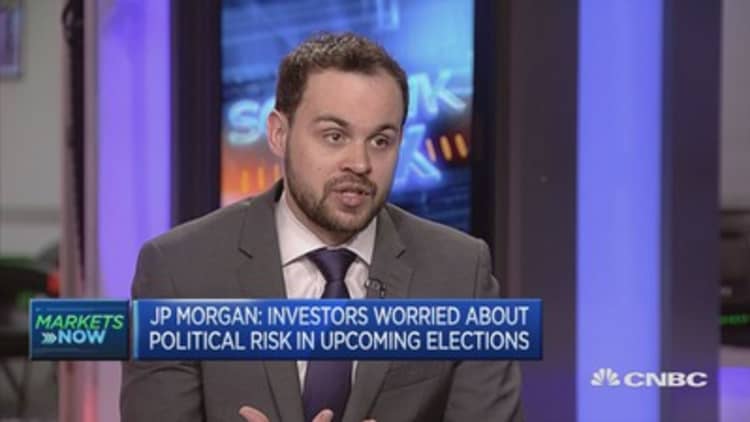Investors should step back from the current round of political turmoil in Europe and pay attention to the fundamentals, strategists have suggested.
Political uncertainty is taking over Europe with Brexit negotiations around the corner, a new independence vote due in Scotland and a general election in the Netherlands. Later in the calendar, there will also be elections for heads of state in France, Germany and possibly in Italy.
"Recent data suggest the euro economy has accelerated and is growing faster than consensus expectations," Credit Suisse said in a note on Monday.
"The corporate sector is at the heart of this expansion. Its financial fundamentals have improved markedly over the last few years. Investment is picking up. And job creation is rapid," the bank added.
Following the last year's surprises of the Brexit vote and the election of President Donald Trump, investors have taken a defensive approach when it comes to assessing the potential outcomes in Europe. Their concerns have been expressed by higher yields in the French and Italian government bonds. But they might be reading too much into the politics of it, several economists have said.

"Those political risks look a bit overdone. The political institutions across Europe were built after the Second World War, they're designed in such a way that it makes it difficult for populist parties to get into power and push their political agenda on the table," Alex Dryden, global market strategist at JPMorgan told CNBC this month.
"If you can look pass those political clouds, you can actually see the fundamentals within the euro zone economy are dramatically improving. Every EU economy grew last year - that was the first time it happened since 2007," he added.
In fact, euro zone countries have grown at a faster pace than the U.S. in 2016, for the first time since the financial crisis broke in 2008. The euro area grew 1.7 percent in the whole of 2016, compared to 1.6 percent registered across the Atlantic.
Credit Suisse noted that the cyclical recovery is boosting European corporates. These have improved their balance sheets and reduced their debt.
"Although near-term political risk might render the euro area economy temporarily uninvestable, the euro area corporate sector looks attractive: rapidly improving profitability and a healthy balance sheet," the bank said.


